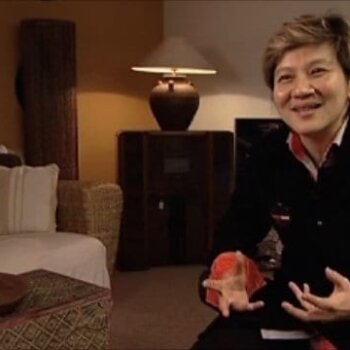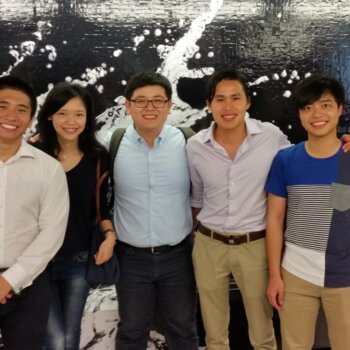(Women on Top in Tech is a series about Women Founders, CEOs, and Leaders in technology. It aims to amplify and bring to the fore diversity in leadership in technology.)
Here is our interview with Abbie Moore, Chief Product Officer and Executive Director of Adopt-a-Pet.com, North America’s largest non-profit pet adoption website. Abbie is lean startup evangelist and coach whose passion is changing the world for animals.
What makes you do what you do?
I’m incredibly fortunate that my personal passion and professional life are completely in alignment. Adopt-a-Pet.com is a mission-driven organization; we have a goal to help every pet in every animal shelter find a home and, in doing so, to help people find the unconditional love that comes from companion animals. I’ve been committed to the cause of animal welfare for my entire life, so it’s a privilege to be able to dedicate my life to this work. I start every day energized by our goals, and I know that in order to achieve them, I need to bring my A-game in terms of leadership, focus, and creativity.
How did you rise in the industry you are in?
I came to technology after spending the first part of my career in the entertainment industry. I’d always wanted to do something with my life that helped animals, and I joined Adopt-a-Pet.com when we were still a very small non-profit organization. As we grew and grew, I dedicated myself to learning everything I needed to know about product and strategic thinking. I cultivated relationships and networks with other product leaders. I became a dedicated practitioner of Lean Startup methodology. I developed my leadership skills. And I started writing and speaking and sharing my experiences with other thought leaders. Most importantly, though, I steered my teams and oversaw the development and launch of successful products.
Do you have a mentor that you look up to in your industries or did you look for one or how did that work?
I have a few mentors, actually, and I am a mentor to others as well. I’m a huge believer in mentorship. Over the years, I’ve made it a practice to identify people I admire for any number of reasons, whether they’re famous authors, founders, or people I’ve seen giving talks at conferences, and then shamelessly pursue them. Sometimes the mentorship is just one or two conversations, but often these relationships have spanned years. I credit advisors and mentors for much of my success. Since the beginning of my career, mentors have helped me learn about various aspects of product development, leadership, and technology. More importantly, back when I was brand new to technology and product, speaking with advisors helped give me what I think has been key to my ultimate success: confidence in myself and my decisions.
How did you make a match if you and how did you end up being mentored by him?
The most important mentor I’ve ever had (and continue to have) was my first, Adopt-a-Pet.com’s CEO, David Meyer. He hired me as employee #3, and he saw something in me that I didn’t necessarily see in myself. David encouraged me to branch out, become a leader, and be unafraid to take risks. He’s supported me through every phase of my career with Adopt-a-Pet.com, and we have learned so much together. We’ve grown the organization exponentially and created a culture we’re proud of; I’m incredibly fortunate to work alongside such a great CEO and visionary
Now as a leader how do you spot, develop, keep, grow and support your talent?
Internally, I look for up-and-coming product leaders who demonstrate extreme curiosity, a passion for the problems we’re trying to solve, creativity, and empathy for our customers. Emotional intelligence is also important. In addition to those functional abilities, it’s also important to elevate talent who exemplify the core tenets of our culture; honesty, accountability, passion, focus, and fun.
We’re a relatively small organization, so every single person on the team is crucial and must be excellent. We’re lucky enough to have an advantage when it comes to recruiting talent: we offer the ability for people to use their talents to help animals, which is very meaningful to so many.
Do you consciously or unconsciously support diversity and why?
I consciously support and believe in the importance of diversity. At Adopt-a-Pet.com, we never set out to hire a certain gender or ethnicity; we seek the best individual for each particular role. That said, women make up 62% of our team!
What is your take on what it takes to be a great leader in your industry?
You must believe strongly in your mission and be able to inspire that same passion in the people you’re leading. You must be able to create and hold a vision for your product and your organization and to pursue that vision with intense focus. It’s important that you understand, and make sure everyone on your team understands, not just the general mission, but the precise definition of success for every endeavor. You need to have a grasp of the macro and the micro, and to be able to switch context and zoom in and out so you always have a full view of the landscape, the market, and the status of each of your projects.
Soft skills are just as important. Be a good listener. Have empathy not just for your customers, but for your team members. I’ve found that treating people well, helping foster work/life balance, and giving your people the freedom to do their jobs without being micromanaged all tend to lead them to feel a greater sense of ownership over the organization and to do their best work.
In my experience, if there’s one quality that separates great leaders from good leaders, it’s the ability to make decisions confidently and quickly. I often have to make decisions with only 50-60% of the information I’d ideally like to have. In these situations, you have to be unafraid to take risks and to make the best, most educated decision you can, using data and your gut.
Advice for others?
Never become complacent, and don’t stay married to your current solution. Technology changes, the market changes, and customer’s needs change. Optimize your current product, but always look for ways to disrupt yourself and to solve your core problem in better ways. To aspiring leaders, especially women, the most important piece of advice I can offer is to believe in yourself. Imposter syndrome is real–please know that everyone has experienced it at some point–and it’s insidious. Often the only thing holding you back from your potential is you, and your mistaken belief that you’re not qualified, or not as qualified as someone else. I’m incredibly passionate about this subject!
To learn more about Adopt-a-Pet, please see http://www.adoptapet.com





























